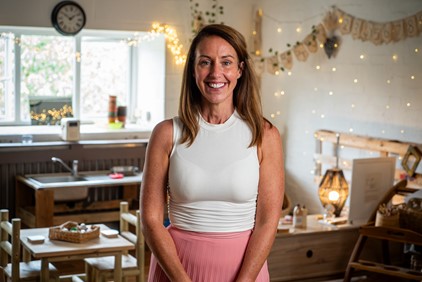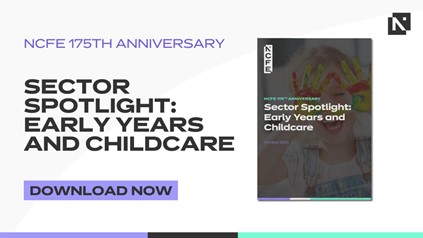We must seize the opportunity to reimagine the future of the early years sector
The following article is taken from our recent Sector Spotlight: Early Years and Childcare report, which you can download and read for free.
I am truly privileged to be a part of a child's life working in the early years sector. Every day I have the opportunity to nurture and inspire children, providing them with safe spaces to explore, create, and discover their unique talents and interests.
In the 13 years since I first opened an 85-place day nursery in my hometown, my commitment to helping children to embark on a journey of self-discovery and develop a lifelong love for learning has only grown. The early years sector – which is built upon foundations of trust, love and fun – continues to be held up by a tapestry of inspiring individuals, dedicated educators and supportive communities.
Yet, we cannot deny that we’re facing several challenges in the sector today – ones which are having tangible, real-world impacts on our dedicated employees, our setting managers, and most importantly, the children in our care.
Retention issues and skills shortages continue to pose significant hurdles, especially in the aftermath of the pandemic. For employees, this can create a sense of instability and uncertainty in their professional lives, as it can be disheartening for them to witness the immense value of their work while facing challenges in career progression or limited opportunities for professional growth. This can lead to frustration and, in some cases, talented individuals leaving the sector altogether.
Setting managers also feel the effects of these retention and skills-based challenges as they must navigate the complexities of managing a team amidst staffing shortages and skill gaps, which can put immense pressure on their workload and stress levels.
Watch: Lucy Lewin discusses the early years and childcare sector from her Little Angels nursery setting.
Another challenge is linked to qualifications and credentials. Many individuals, much like me, may have entered the early years field without prior qualifications, but with an immense passion and dedication to making a difference. Yet, there seems to be a growing emphasis on formal qualifications, which may unintentionally exclude those who possess valuable experience and a genuine desire to contribute to the sector.
In the face of these pressures, paired with the likes of the cost-of-living crisis, we’ve also had to ensure that wellbeing is at the front of everything we do. This means having a strategy for how we ensure everyone is supported. For example, I support the manager, the manager supports the senior team, and the team leaders support their teams – meaning these same teams are able to focus on the children.
To overcome these challenges, I believe we must adopt a critical yet optimistic mindset. While we may be compelled to react to short-term concerns, it is crucial that we maintain a long-term vision and develop comprehensive plans that address the evolving needs of our workforce.
It starts with changing the narrative around our value and the incredible impact we have on society. We must take pride in the important work we do – educating and architecting the brains of future generations. By speaking about our profession with conviction, positivity, and a deep sense of purpose, we can reshape the perception of early years education and elevate its status in the eyes of the world.
We must also invest in professional development opportunities, mentorship programmes, and support networks for our employees. By empowering them with the tools and resources they need to thrive, we can enhance job satisfaction and promote career progression. Plus, by embracing flexibility and innovative approaches, we can attract and retain a talented workforce that will shape the future of early years education.
It is a privilege to be a champion for early years education, an advocate for the unique needs of young learners, and a voice for the incredible work we do. By valuing our profession, investing in our workforce, and actively engaging with policymakers, we can create an environment where our employees, setting managers, and most importantly, the children – thrive and reach their full potential.
Together, we must seize the opportunity to reimagine the future of the early years sector and create a collaborative ecosystem where early years professionals can excel and positively impact the lives of children and families.
Lucy opened Little Angels Nursery Uppingham in 2010 with a goal to deliver first class, flexible childcare to her local community. Lucy has a First Class BA Honors Degree in Education Studies with Early Years, as well as a foundation degree in Early Years Education and an NVQ Level 3 in Childcare and Development.
To discover more about the opportunities and career pathways available within the early years and childcare sector, click here.

Attracting younger workforce key to future of social care
A new report providing expert insight into current and future challenges in social care has highlighted the pressing need to bring young, skilled workers into the sector.

Learner stories: "I want to be the best I can be in this sector"
We speak with Jenni Davidson, who is currently on a 16-19 study programme at Ullswater Community College, to find out more about her career aspirations to become a Norland Nanny.

Ufi and NCFE partnering to drive forward innovation in the assessment of vocational skills
Ufi VocTech Trust and NCFE have announced a new strategic partnership to harness the transformative power of technology to drive change and reform in the assessment of vocational training and skills.




